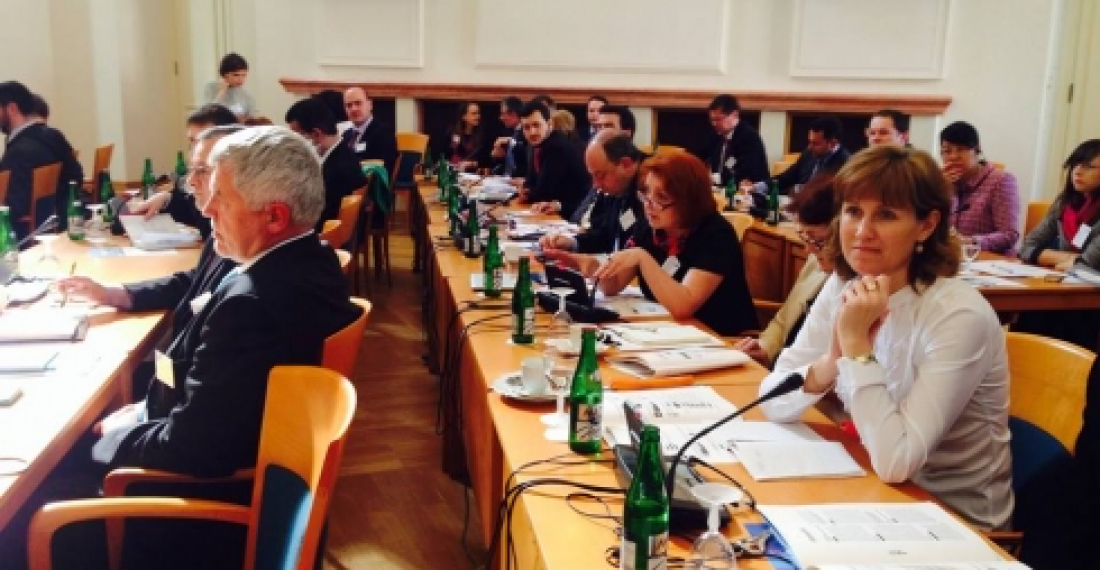The EU Commissioner for Enlargement and Neighbourhood Policy, Stefan Fule this morning told civil society leaders from Eastern Partnership countries meeting in Prague that the EU "has been very clear in its support for its Eastern partners. We have taken a firm and united stance condemning the illegal annexation of Crimea by Russia. Such behaviour cannot and will not be tolerated in Europe of the 21st century. We fervently insist on the fundamental right of each country to freely determine its foreign policy and its trade policy, as enshrined in the Helsinki Final Act."
Fule added,
"where others see rivalries, we see opportunities for cooperation; where others think in near sighted self-interest and revert to using economic coercion, threats and covert action to instigate protests and instability, we strive to establish a common area of prosperity, stability and democracy, where the respect for human rights and fundamental values is the norm."
The EU Commissioner reiterated the support of the union to civil society in the Eastern partnership countries. The meeting with the representatives of civil society representatives from Armenia, Azerbaijan, Belarus, Georgia, Moldova and ukraine took place at the Czech Senate and was held as part of the activities makring the fifth anniversary of the Easter Partnership.
A summit meeting with the heads of state opened yesterday at prague castle. the presidents of Armenia, Azerbaijan, Georgia and Moldova are attending the Summit. Ukraine is represented by its Foreign Minister and Belarus is absent.
Source: Commonspace.eu
Photo: Some of the participants at the meeting of civil society leaders held to mark the fifth anniversary of the EU Eastern Partnership. The meeting was held at the Senate of the Czech Republic and was addressed by Stefan Fule, EU Commissioner for Enlargement and Neighbourhood Policy. (Picture courtesy of the Eastern Partnership Civil Society Forum).







